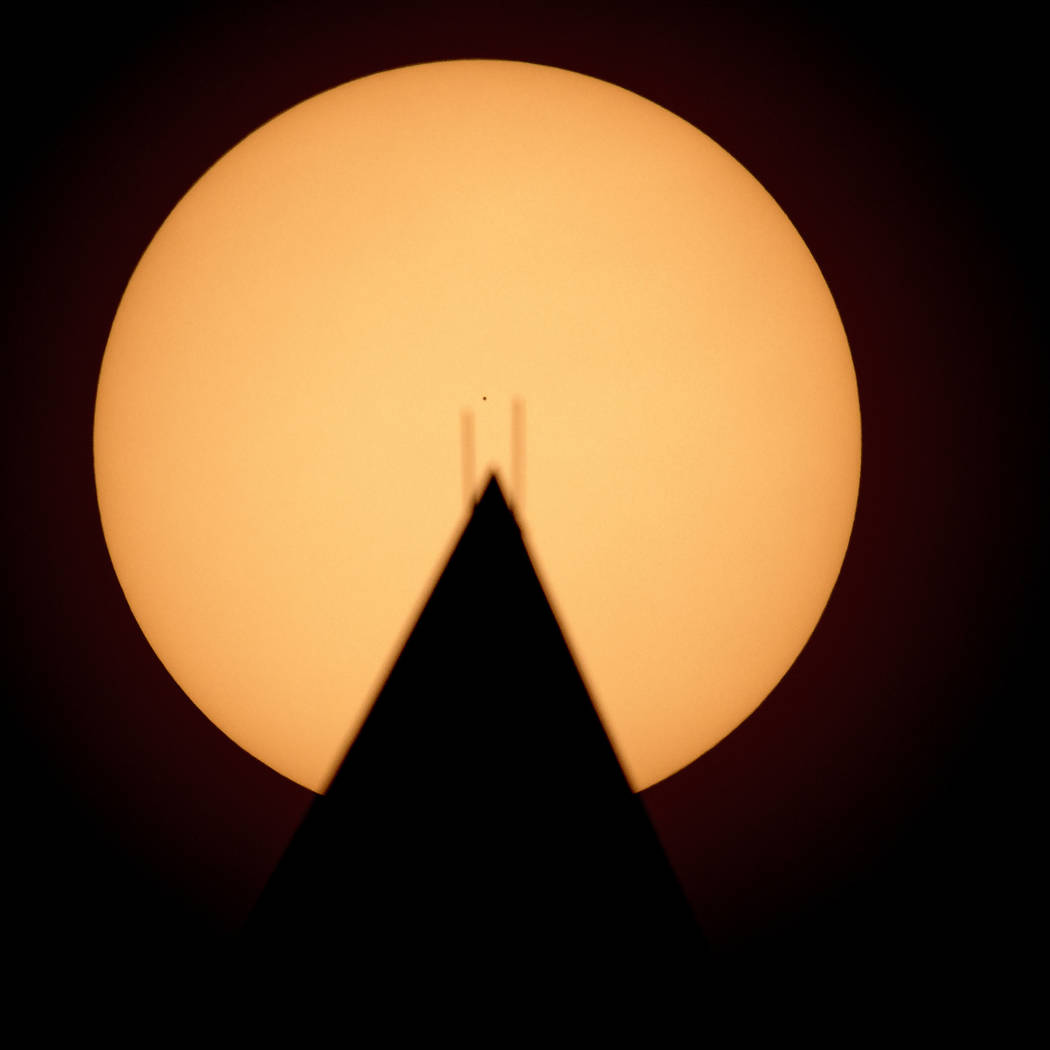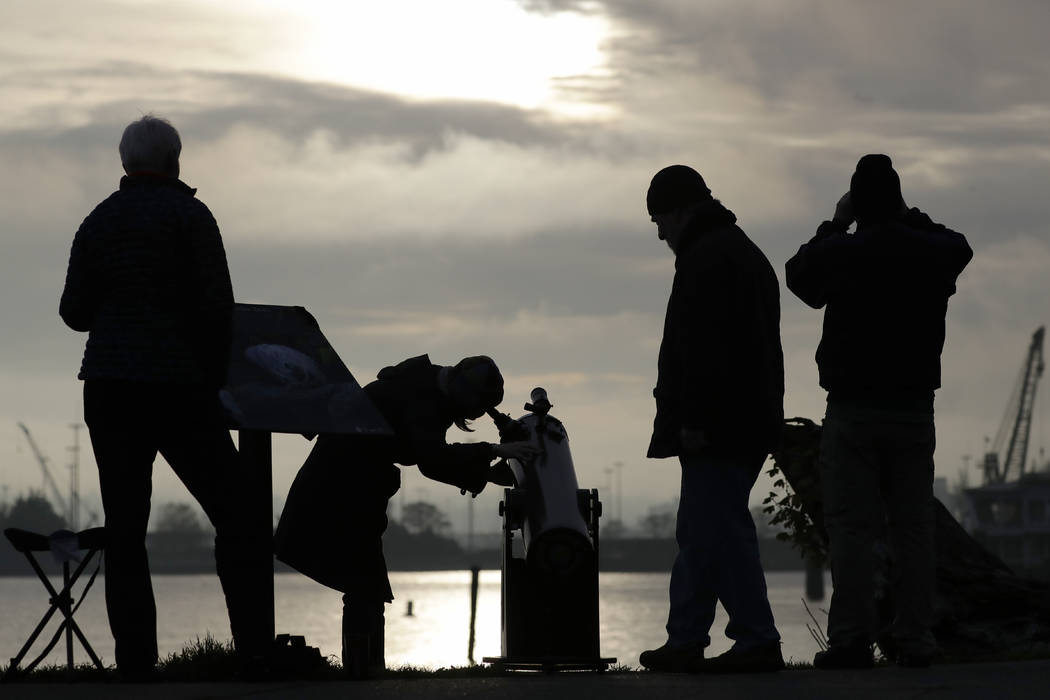Transit of Mercury brings out stargazers around the world
CAPE CANAVERAL, Fla. — Mini Mercury skipped across the vast, glaring face of the sun Monday in a rare celestial transit.
Stargazers used solar-filtered binoculars and telescopes to spot Mercury — a tiny black dot — as it passed directly between Earth and the sun on Monday.
The eastern U.S. and Canada got the whole 5 ½-hour show, weather permitting, along with Central and South America. The rest of the world, except for Asia and Australia, got just a sampling.
Mercury is the solar system’s smallest, innermost planet. The next transit isn’t until 2032, and North America won’t get another shot until 2049.
In Maryland, clouds prevented NASA solar astrophysicist Alex Young from getting a clear peek. Live coverage was provided by observatories including NASA’s orbiting Solar Dynamics Observatory.
“It’s a bummer, but the whole event was still great,” Young wrote in an email. “Both getting to see it from space and sharing it with people all over the country and world.”
At Cape Canaveral, space buffs got a two-for-one. As Mercury’s silhouette graced the morning sun, SpaceX launched 60 small satellites for global internet service, part of the company’s growing Starlink constellation in orbit.
In Las Vegas, stargazers gathered at CSN Planetarium along with Dartmouth College Professor of Physics and Astronomy Dr. Robert Fesen, to watch Mercury’s transition over the sun.





















